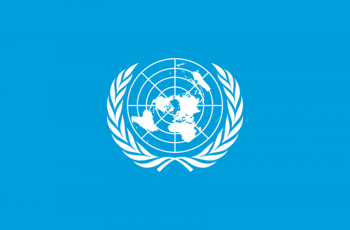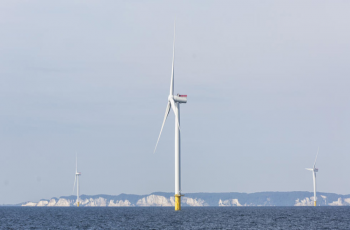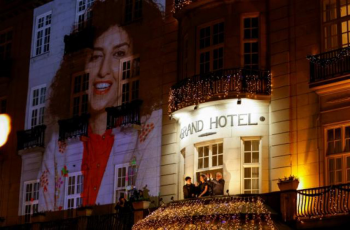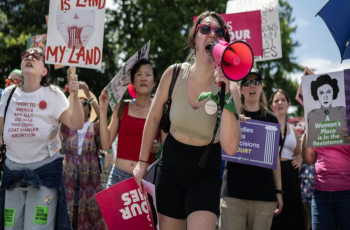Resurgent Conservative Bids To Swing Paris Back To The Right
While Emmanuel Macron’s camp has been shaken by his candidate’s resignation, conservative Rachida Dati has imposed herself as socialist incumbent Anne Hidalgo’s biggest opponent in the Paris mayoral elections.

Les Républicains candidate for the 2020 Paris mayoral election Rachida Dati poses during a photo session in the French capital on November 25, 2019. Photo: © Joel Saget, AFP
While Emmanuel Macron’s camp has been shaken by his candidate’s resignation, conservative Rachida Dati has imposed herself as socialist incumbent Anne Hidalgo’s biggest opponent in the Paris mayoral elections. Analysts say Dati, the right-wing Républicains’ candidate, has an increasingly strong chance of bringing the French right back from the dead in the City of Lights.
As campaigning got under way for March’s Paris mayoral elections last year, a renaissance for Les Républicans in the capital looked impossible. The Parti Socialiste has won decisive victories in every battle for Paris since 2001 – consigning to the history books conservatives’ dominance of the city during former President Jacques Chirac’s marathon tenure as mayor from 1977 to 1995. “No one, except herself, expects Dati to beat Hidalgo,” observed a Le Monde article in October, analysing the French right’s “long defeat” in Paris.
If any other party were to break the Socialists’ hold on the French capital, it seemed it would be President Macron’s La République En Marche (LREM) – the centrist disrupters who won 17 Paris seats in the 2017 parliamentary elections, compared to just three for Les Républicains.
But now Dati, a former justice minister under ex-president Nicolas Sarkozy, is a close second in polls for the mayoral contest. The most recent survey, carried out by pollsters Odoxa for right-wing daily Le Figaro in late January, puts Dati at 20 percent – up two points from the previous polls and just three points behind Hidalgo, who was down by one percent.
‘Disgruntlement’ with Hidalgo
The left-wing incumbent has divided Parisians with her flagship plans to green the City of Lights. Roads have been dug up to make room for bike lanes across the French capital, while cars have been banned from large stretches of highway next to the River Seine. Hidalgo wants to take these policies further by completely pedestrianising the city centre and turning the area around the Eiffel Tower into a massive public park.
Her environmentalist approach has gone down well amongst many Parisians – especially because the scorching summer of 2019, when the city’s thermometers surged to a record-breaking 42.6 degrees, brought home the terrifying, galvanising reality of climate change.
But it has made Hidalgo the bête noir of many motorists – a risky group to antagonise in France, seeing as the Macron government was famously rocked by the Yellow Vests, a movement born out of anger at his 2018 petrol price hikes. There is also doubt about her policies’ effectiveness: the number of days when Paris experienced heightened ozone levels – a telltale sign of poor air quality – trebled in the first four years of Hidalgo’s tenure.
At the same time, many residents of the French capital are concerned about crime, particularly since the latest official figures released in October showed the number of offences was up by more than 10 percent in the first nine months of 2019.
“A programme of disruptive public works that have not yet yielded clear benefits opens Hidalgo to the accusation of experimenting with environmental initiatives at the expense of the city’s inhabitants,” said Jim Shields, a professor of French politics at Warwick University. “This is a powerful argument for many and leaves much disgruntlement to be harvested by a Dati candidacy promising to return Paris to the Parisians through a programme focused on housing, public transport, cleanliness, and law and order.”
“Dati has brought the focus of the campaign back to daily life in Paris,” added Christophe de Voogd, a professor of politics at Sciences Po. “She’s been clever to focus on these local issues, on which Hidalgo has failed.”
A ‘traditional right-wing approach’
Dati has sought to capitalise on this disillusionment with Hidalgo, declaring on Sunday that a “change in power is at hand". It is significant that she used the specific French word for political change – “l’alternance” – which has a rich history as a rallying cry for the country to swing to the opposite side of the left/right spectrum, especially against longstanding incumbents.
“Talking about embodying l’alternance speaks to the imagination: Hidalgo has been the incumbent for a long time, including a spell as deputy mayor for nearly 14 years before taking her current office, and Paris’s problems have persisted, whereas Dati looks like someone very different,” said Andrew Smith, a professor of French politics at the University of Chichester.
“All Dati’s talk about bringing back vibrancy with pro-business policies plays well, as does talking a lot about the very important issue of housing and her experience as a former justice minister, with a tough approach on crime,” Smith continued. “That traditional right-wing style approach appeals to many in a municipal setting.”
As the chosen candidate of a president who campaigned as a centrist but has governed on the centre-right, LREM’s Benjamin Griveaux tried to take a similar approach, reaching out to the petits bourgeois voters predominant in Paris’s western districts, who traditionally tend to favour Les Républicains. He declared to Le Monde in October: “I don’t want Paris to become a city just for the rich, the poor, tourists, and bobos” – the “bohemian-bourgeois”, a bedrock of Hidalgo’s support clustered in eastern neighbourhoods of the city.
Yet even before he withdrew following the publication of a sexual video on Friday, Griveaux struggled to gain traction, with the most recent polls showing him trailing in third place at 16 percent.
Macron acted quickly to try and salvage his attempt to win Paris – drafting in his well-respected health minister Agnès Buzyn to replace Griveaux on Sunday. But “Dati will still win votes from the soft right of LREM,” said Smith. “Buzyn is a good candidate, a heavyweight, but she doesn’t carry with her a transformational aspect.”
Villani, ‘the joker in the pack’
With neither Dati nor Hidalgo likely to win a majority in the first round on March 15, they will both be seeking votes from supporters of the other candidates in the second round, exactly one week later.
In this redistribution of votes, “we might expect Hidalgo to benefit most from the green votes of EELV (the environmentalists polling in fourth place at 14.5 percent) and Dati to pick up centre-right support from LREM”, Shields observed. “This leaves the ex-LREM dissident Villani as the joker in the pack.”
An award-winning mathematician with a flamboyant sartorial style, Cédric Villani was the star of LREM MPs elected in 2017. He then made waves in a different manner in September – announcing that he was running for Paris mayor, even though an LREM committee had picked Griveaux two months previously.
The abundant media attention given to Villani sometimes belies his modest polling position, in fifth place at 10 percent. Nevertheless, the redirection of his votes in the second round could be crucial in determining such a close race. Despite Dati’s upward trajectory in the polls, Villani voters pose a major threat to her bid for Paris: “There may be grounds for seeing Villani’s support, with its marked green tinges, incline more to Hidalgo than to Dati, especially since Villani was a vocal supporter of Hidalgo’s original mayoral bid in 2014,” Shields noted.
-

Asia hit hardest by climate and weather disasters last year, says UN
2024-04-23 -

Denmark launches its biggest offshore wind farm tender
2024-04-22 -

Nobel laureate urges Iranians to protest 'war against women'
2024-04-22 -

'Human-induced' climate change behind deadly Sahel heatwave: study
2024-04-21 -

Moldovan youth is more than ready to join the EU
2024-04-18 -

UN says solutions exist to rapidly ease debt burden of poor nations
2024-04-18 -

Climate impacts set to cut 2050 global GDP by nearly a fifth
2024-04-18 -

US sterilizations spiked after national right to abortion overturned: study
2024-04-13 -

Future of Africa's flamingos threatened by rising lakes: study
2024-04-13 -

Corporate climate pledge weakened by carbon offsets move
2024-04-11
